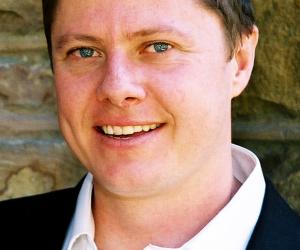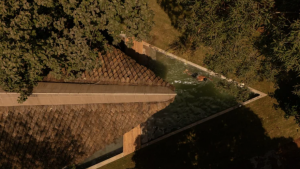From the Series
South African architect Heinrich Wolff is the co-founder of Wolff Architects, a design studio concerned with developing an architectural practice of consequence through the mediums of design, advocacy, research and documentation. At the 2013 AZA Architecture Conference, Wolff gave insight into his practice as well as his Blue Shed project at the V&A Waterfront in Cape Town.
The Blue Shed project came about after the University of Cape Town's Graduate School of Business approached Wolff to construct an innovation hub in the heart of Cape Town's V&A Waterfront. Wolff decided to reconfigure the Blue Shed market to accommodate the business incubation centre as well as large market space, while also addressing the problematic position as a physical obstacle between the Cape Town Aquarium and the rest of the V&A Waterfront, on a urban level.
He is proposing to remove the shed and transform the area into a walkway, that would greatly benefit the surrounding environment and provide a far more effective urban connection.
Great architecture sets up great situations, says Wolff.
For the innovation hub, Wolff proposes a giant suspended steel structure that hovers above the walkway: “This will increase the economic opportunities for the V&A Waterfront through providing a space that can be used for fashion shows, markets and product launches below the floating structure”, adds Wolff. Along with being an economically viable addition to the V&A Waterfront, the spatial design will stimulate creativity and interaction between students, visitors and passersby.
Wolff is inspired by the fleeting quality of beauty, and so he concentrates on making sustainable structures that are aesthetically pleasing but that can also be adapted to new needs in future.









